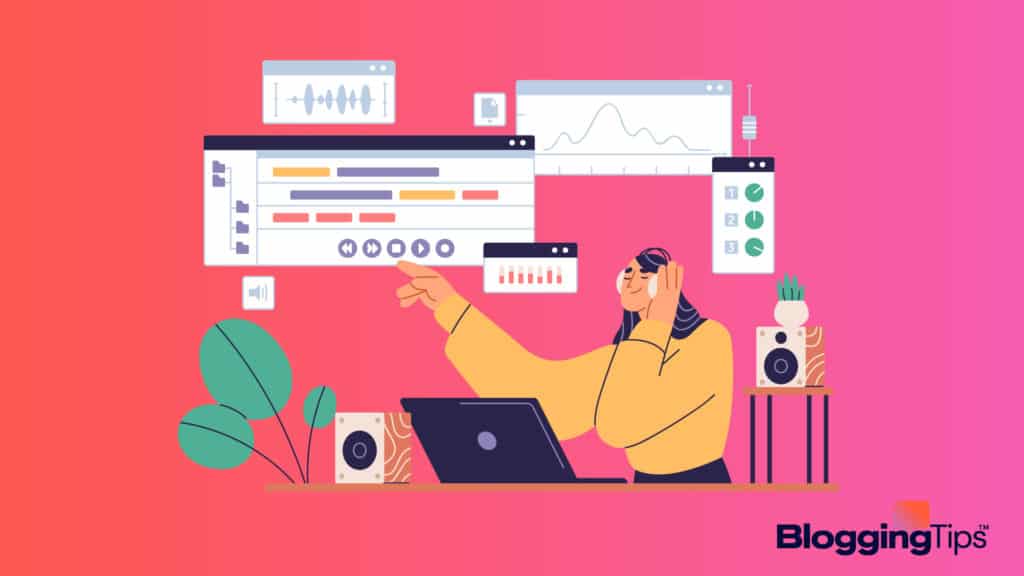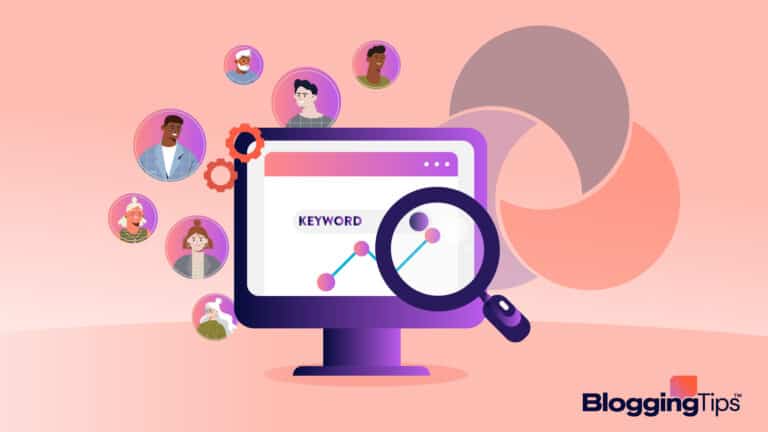Do you have a passion for music?
Do your friends always ask you for music recommendation?
Like writing?
Those are all great signs that you should start a music blog.
For music writers or passionate fans, a blog can be great for your career and professional life, or it can be a fulfilling hobby.
And if you’re really good, you might even be able to make some money off of it!
In this article we’ll look at the best reasons to start a music blog, how to create your blog, and some tips on how you can launch and promote your new music blogging project.
Why Start a Music Blog?
If you’re passionate about writing and music, a music blog could be the perfect hobby, side hustle, or even full-time job.
Your music blog not only offers you a space to be creative, but it could also allow you to:
- Build relationships with record labels, artists, tour managers, and others in the music industry
- Become an industry “insider” and hear news first
- Attend live events, festivals, and performances for free to review for your blog
- Get access to free music, free concert tickets, new songs, and pre-releases
- Create a community of music fans who share your interests
- Become an influencer and grow your personal brand
- Make money from a career in something that you enjoy
Doesn’t it sound rewarding? Here’s how to turn your music blogging dream into reality.
How to Plan Your Blog
The best blogs are run by bloggers who research, plan, and create goals for what they want to achieve.
In this section, we’ll look at how to plan your music blog for success — including why you need a niche and how to create a brand.
Why You Need a Blogging Niche
With so many blogs in existence, and new ones created every day, it is hard to stand out.
You need to
A well-defined niche will help your audience to discover you and your content, and make it easier for you to be successful.
A niche is what your blog is about, and the audience it serves.
You could start a blog about country music, electronic music, how to learn to play guitar — these are all niches.
If you can, niche down even further as this makes it easier for you to become a go-to person or thought leader in your area of interest.
For example, your blog could teach college students how to play guitar, or be a resource for emerging female electronic music artists.
Not sure what your niche is?
Create a list of everything that you’re passionate about or knowledgeable about.
Test different combinations of the two, and do some research online to see which music blogs are already in that space and where you could create something that stands out.
- Local music scene blog (local artists, venues, events listing, reviews)
- Music genre blog (classical, country, R&B, rap, electronic, dance, pop)
- “Behind the business” blog (record labels, artist managers, recording studios)
- Live music blog (reviews of live shows and festivals, what to take to a festival, how to meet your favorite bands)
- Music education blog (how to learn an instrument, how to start a band, how to find a recording studio)
Take some time to define your niche, decide what your blog will cover, and how you’ll make an impact online.
How to Create a Brand for Your Blog
Now that you’ve decided what you want to write about, your blog needs an identity.
One of the first steps is to decide on your blog name.
Without a name, you can’t buy a domain name or launch your blog, so it’s important to take some time to find the right name.
You may already have a name in mind, but if not here is how you can choose a blog name:
- Read our guide to how to come up with a blog name
- Research other music blogs and look for trends or similarities
- Look at blogs outside your niche for inspiration
If you write about a specific type of music, consider whether you could include that genre in your blog name, like Popjustice.
If your blog is education based, including the subject in your name can help your audience find you — see Recording Revolution for inspiration.
Before you decide on a name, make sure that it’s available.
Check to see if any associated domain names are registered (you can do this on Bluehost’s website) and see if the social media handles are available.
You’ll also want to check that the name isn’t trademarked or owned by another brand. Visit the United States Patent and Trademark Office’s website to run a trademark search.
After you’ve decided on a name for your blog, you’ll want to create a visual identity for it.
In most cases a simple logo works well — you could try to design one yourself, hire someone on a site like Fiverr, or barter skills with a friend.
With a name and logo for your blog, it’s time to bring it to life.
How to Start Your Music Blog
Now that your blog has a name and identity, you can build it.
In this section, we’ll look at how to buy a domain name, sign up for hosting, install and customize WordPress, and create a content plan.
Buy a Domain Name
As part of your research, you’ll have checked that your blog name is available to register as a domain name.
We recommend you choose a .com domain, as this is recognized worldwide and easy to remember.
While there are a handful of .com alternatives, the most well-known is the .com extension.
You can register your domain with any number of service providers, but we recommend Bluehost as they provide a great service and are competitive on price.
Some providers will offer a free domain with your hosting package, so check this before you buy.
Choose a Web Hosting Provider
After you’ve registered your domain name you’ll need to buy hosting for your blog.
You’ll pay a small monthly fee to your hosting provider to store your blog and its content, so that it’s visible online for readers to enjoy.
Our recommended hosting company is Bluehost, as it offers affordable plans with lots of space — great for music blogs with lots of high quality photos and videos.
If you’re on a tight budget and don’t want to invest in hosting at this time, read our guide on the best free blogging sites in 2018 and try a free platform like WordPress.com, Blogger, or Tumblr.
Install a Content Management System
The next step in the process is to install a content management system, also known as a CMS.
This is a platform which allows you to create, upload, and store your blog posts and content.
Our recommended content management system for bloggers is WordPress.
WordPress is a free, open source CMS which is supported by a large community of developers and experts.
Most hosting providers will offer a “one click” way to install WordPress.
Bluehost also offers managed WordPress hosting, which includes automatic installation and updates — a great option if you want to focus on your content and leave the technical side to an expert.
For step-by-step instructions on how to set up WordPress, read our guide on how to start a blog.
Install a Custom Theme
Every WordPress install comes with free themes to choose from, but we recommend you invest in a third party custom theme as this will help your blog to stand out, look professional, and give you extra functionality.
A great place to find a theme for your blog is Themeforest — there are lots of WordPress themes designed for music bloggers.
Another place to find professional, clean blog themes is Studiopress.
If you’re not sure which theme to choose, it’s time to do some research.
Look at other music blogs and identify trends, colors, layout, and other design elements that appeal to you and your potential audience.
Create a Content Plan for Your Music Blog
By now you have your blog almost ready to go, but before you launch you need to create some content.
Successful blogs are updated regularly, feature interesting and on-topic content, and take advantage of trends and current events to attract their readers back.
This is why we recommend you create a content plan for your music blog.
This can be as simple as a list of blog posts you want to write over the next few months, or something more complex that includes a calendar and task management system.
Social Media Examiner has a useful guide on how to use Trello to manage your blog content.
- Ideas for future blog posts or series
- Details of future album releases, shows, or festivals you want to cover
- A calendar of when you plan to publish your content
- A list of steps or actions you need to take to create, publish, and promote your blog posts
- Collaboration with team members, if you have a team
However you choose to plan and manage your content, if you are organized it is easier to stay focused, respond to current events, and remain relevant with your audience.
Launch Your Music Blog
Now that your blog is online it’s time to share it with the world.
Tell your friends and family and ask them to support you by reading your blog and sharing it with their networks.
If you’ve created an email list ahead of your big launch, now’s the time to email them to let them know it’s live.
You could also schedule some content for your social media channels to promote your launch and your content over the coming weeks.
- Share engaging content on your social media channels
- Be consistent with your content schedule and promotional activity
- See what’s trending on Spotify and Soundcloud and use this as inspiration for your content
- Go to events, festivals, and shows to create content and meet fans
- Build relationships with other music bloggers and join communities like Music Bloggers Network
- Look for partnerships with other creators like live music photographers, videographers, and influencers
- Discover and become active in music fan communities (a good place to start is Reddit)
- Learn new skills to improve your content — take a photography or videography class
- Experiment with other mediums to complement your blog, like a podcast or video series on YouTube
For more ideas on how to start and grow a successful blog, see our guide to blogging for beginners.







